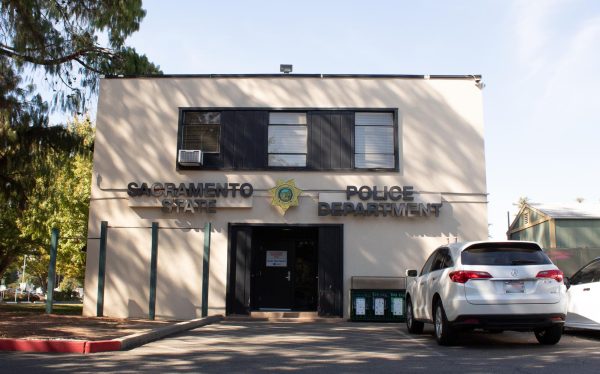Handling racist university benefactor will be tricky
March 10, 2004
Over the last couple of weeks, local publications have printed stories shedding light on Sacramento’s “most remarkable citizen” — also one of Sacramento State’s primary benefactors. Charles M. Goethe was a famous Northern California philanthropist who left a significant amount of money to the university after his death in 1966, and whose name survives on a scholarship, a local middle school and the Sac State arboretum (the swampy piece of land in front of the campus off J Street).
Goethe recently re-emerged as the subject of a research paper written by Tony Platt, a Sac State professor of social work. Platt’s impassioned research details Goethe’s history as a known racist who supported the actions both local and international supremacist organizations, including the Nazi party.
From the 1930s until his death, Goethe invested money in the Sacramento-based Eugenics Society of Northern California; the Web site dictionary.com defines eugenics as “the study of hereditary improvement of the human race by controlled selected breeding.” Goethe admired the Nazis’ attempts at creating a master race, and thought it should also be done here in California.
Today, eugenics research is in the process of redefining itself as a means for simple genetic research, rather than a biological plan to create the master race that Goethe believed in. Goethe even left behind an estimated $1 million to fund eugenics research at Sac State.
Recently, it seems as if Goethe’s memory is disappearing from campus. “(University) administration quietly removed his name from his residence in September 2000, resurrecting it as a memorial to its architect, Julia Morgan,” Platt wrote in The Sacramento Bee on Feb. 29, and two weeks ago the Charles Goethe Arboretum sign was chopped down without even a mention in The State Hornet’s police log.
Was this sign removed by a random looter, or did the administration call for its removal? I would like to think it was President Alexander Gonzalez’s administration. This guy Goethe was an unsavory cat who did things of a hateful nature, and it would be understandable for Sac State to openly sweep this guy under the rug.
But it’s also important to understand that this man lived in a time when his beliefs weren’t far from normal for some Americans. If he were alive today, I’m sure Goethe would do a better job of hiding his racist acts; for starters, he would probably hold his racist rallies somewhere more secretive, like Elk Grove.
Goethe’s legacy is somewhat sad and pathetic in a way. His letters written to the Nazi party in admiration of its efforts to create a master race come off more as the work of a Hitler groupie than that of an Anglo-Saxon icon.
Platt suggests that the Goethe eugenics fund could be used for the “service of human betterment,” but who would decide where the money goes? Maybe to multicultural scholarships, sports programs or equally distributed to the university’s departments? Maybe the money can stay in researching genetics, perhaps for the development of a person who’s race can’t be determined — a “super mutt” if you will, who combines all of the positive qualities associated with every race known to man.
Whatever happens to the Goethe fund, it should be used in a discreet manner. This wouldn’t even be an issue today if the guy didn’t leave behind all that money, and it would be a shame to see Sac State students compete for a scholarship just for the purpose of sticking it to an old, dead racist.



































































































































